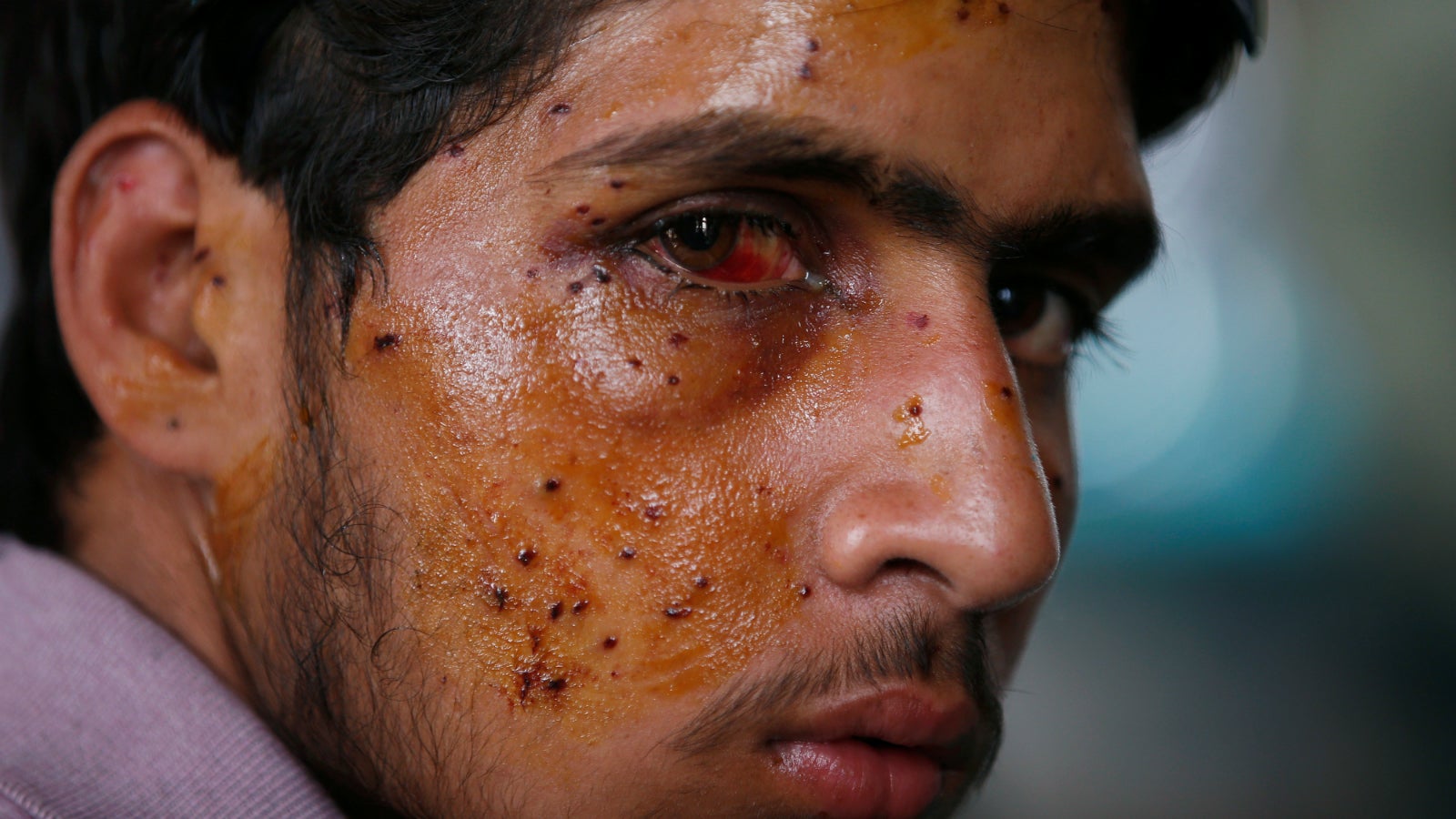New Delhi is selling Indian democracy to Kashmiris by gagging the press
The world watched aghast last Friday (July 15), as an attempted coup in Turkey dramatically disintegrated. A section of the military seized the country’s state broadcaster, while president Recep Tayyip Erdogan—a man with a reputation for muzzling the press—countered the coup by appearing on another television news studio via FaceTime. The irony was lost on few.


The world watched aghast last Friday (July 15), as an attempted coup in Turkey dramatically disintegrated. A section of the military seized the country’s state broadcaster, while president Recep Tayyip Erdogan—a man with a reputation for muzzling the press—countered the coup by appearing on another television news studio via FaceTime. The irony was lost on few.
You couldn’t help but think, this doesn’t happen in India. In the world’s largest democracy, the fourth estate is free and unfettered. Except that it isn’t, at least not in Kashmir.
The same Friday night, printing presses in Jammu and Kashmir’s summer capital of Srinagar were being brought to a halt and newspaper copies seized—all at the behest of a democratically-elected government.
Until Friday, New Delhi was able to use the words “terrorism” and “Pakistan” to explain what was happening in Kashmir: the killing of a popular militant, the subduing of a mass uprising, the rising death toll, the long curfew. Now, it has moved into another realm entirely.
With the three-day gag on the press—which could be extended—India is demonstrating how it does not extend to Kashmiris the basic tenets of its own constitution. Such muzzling will make even those in denial wonder if it’s merely about terrorism, as New Delhi seeks to present it.
The voice of an entire population is being suppressed—with bullets, pellets, and now censorship.
Kashmir Times editor Anuradha Bhasin said in a statement that 20 policemen reached the paper’s printing press on the outskirts of Srinagar, detaining press foreman Fayaz Ahmed and 10 other employees. The policemen seized metallic printing plates and 70,000 copies of the newspaper.
Similar scenes were witnessed at other publications, too. Copies of newspapers such as the Rising Kashmir, which had already left the printing press, were chased down and seized.
On Saturday morning, a state government spokesperson called up newspaper editors and told them the ban would last three days. The next editions of the Kashmir Times, Kashmir Observer, Kashmir Reader, Greater Kashmir, Rising Kashmir, and other newspapers would reach readers only on Tuesday.
As the death toll reaches 43, the government clearly seems to be thinking that information is the problem. Don’t let people read reports of pellets blinding boys; don’t let them know what the world is saying about it—and all will soon be fine.
As editors protested outside Srinagar’s Press Colony, they were informed that curfew passes won’t be issued to newspaper staff over the weekend. The curfew has now been in place for 10 days. Mobile internet services remain suspended, though the state television and radio are functioning. One of the protestors at the Press Colony described it as a “communication curfew.” In some areas, both landline and mobile phone services were disrupted.
This is the sort of stuff that happens in dictatorships.
The blackout has given way to rumour-mongering, which at the best of times is rife in Kashmir. Information spreads by word of mouth, the anger will not dissipate if Kashmiris sit at home sipping tea amidst curfew.
“Bloodbath continues,” read the front-page headline in the Greater Kashmir on Saturday morning. For those who didn’t get the newspaper, it isn’t a particularly difficult headline to imagine.
Kashmiri newspapers continued to carry stories on their websites. They reported another death or two following firing at unarmed protestors defying curfews, despite concertina wires blocking major roads across the valley. The Kashmir Reader reported separatist Yasin Malik as saying, “By blocking communication, India can’t kill our pro-freedom spirit.”
In Kashmir Times, a columnist recalled his experience of Indira Gandhi’s Emergency to show how press censorship backfires.
Like others, the Rising Kashmir reported separatist leader Syed Ali Shah Geelani’s letter to world leaders, asking for six things the Indian government needs to do for peace, including rapid demilitarisation, the release of political prisoners and the repeal of controversial laws.
The government, of course, has its own stock justification.
“The clamp-down was necessitated as Pakistani channels that are beamed here through cable television network have launched a campaign aimed at fomenting trouble here,” a Jammu and Kashmir government minister told Reuters, refusing to be named. “Some newspapers were also sensationalising the violence… We will take a decision on (their) restoration after July 19,” the minister said.
The Editors Guild of India has condemned the censorship. In a statement, it said, “It is extremely unfortunate that the state government, under fire for its poor management of the law and order situation in the Valley, has sought to shoot the messenger.”
We welcome your comments at [email protected].